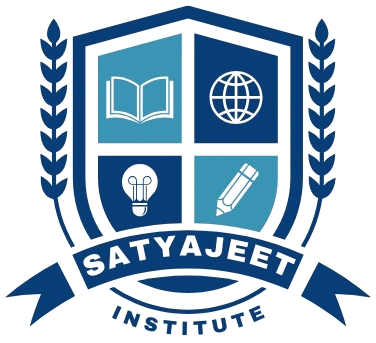Course DetailsHome / Courses Details
Community Medical Service and Essential Drugs
🩺 CMS & ED – Course Overview
The Community Medical Service and Essential Drugs (CMS & ED) course is designed to equip individuals with the knowledge and skills to provide primary healthcare services, particularly in rural and underserved areas. It focuses on the safe use of essential drugs, basic diagnosis, first aid, and health education.
-
Course Duration: 18 to 24 months
-
Eligibility: 10th or 12th pass (science preferred)
-
Focus Areas: Basic medicine, public health, and essential drug use
-
Ideal For: Rural health workers, NGO volunteers, and individuals serving in primary care roles
This program supports the goal of expanding access to basic healthcare where qualified doctors are scarce.

📘 CMS & ED – Course Outline
1. Human Anatomy & Physiology (Basics)
-
Structure of major organs and systems
-
Functions of the body systems
-
Introduction to pathology
2. Community Health & Sanitation
-
Personal hygiene
-
Safe water and sanitation
-
Health education for rural populations
3. First Aid & Emergency Care
-
Basic life support (BLS)
-
CPR and wound care
-
Management of burns, fractures, and bleeding
4. Communicable & Non-Communicable Diseases
-
Identification and control of common infectious diseases
-
Diabetes, hypertension, asthma basics
-
Immunization schedules
5. Pharmacology of Essential Drugs
-
WHO list of essential drugs
-
Drug classification and dosages
-
Side effects, contraindications, and precautions
-
Storage and handling of medicines
6. Maternal & Child Health (MCH)
-
Basic antenatal and postnatal care
-
Growth monitoring
-
Vaccinations and nutrition
7. Diagnosis and Patient Assessment
-
History taking
-
Basic physical examination
-
Using a thermometer, stethoscope, and BP apparatus
8. Ethics & Medical Law
-
Patient confidentiality
-
Legal responsibilities and boundaries
-
Ethical practice in rural healthcare
9. Internship / Field Training
Hands-on experience at rural clinics or health camps
-
Drug dispensing under supervision
-
Community outreach activities
10. Final Examination & Certification
-
Theory and practical evaluation
-
Certification as a CMS & ED practitioner (subject to regional laws)
✅ Prerequisites for CMS & ED Course
-
Educational Qualification:
-
Minimum 10th pass (some institutions may require 12th pass, preferably with Science stream)
-
-
Age Requirement:
-
Minimum age: 17 years
-
No upper age limit in most institutions
-
-
Basic Health Knowledge (Preferred):
-
Familiarity with rural health issues and basic medical awareness is an advantage
-
-
Medical Fitness:
-
Candidate should be physically and mentally fit for practical training
-
-
Documents Required (Typically):
-
Marksheet and certificate of 10th/12th
-
Identity proof (Aadhaar card, etc.)
-
Passport-size photographs
-
Medical fitness certificate
-
📚 Learning Resources for CMS & ED Students
1. Books & Study Material
-
Essentials of Medical Pharmacology – by K.D. Tripathi
-
Textbook of Community Medicine – by Rajvir Bhalwar or Park’s
-
First Aid Manual – St. John Ambulance
-
Institute-provided notes on drug use, diagnosis & patient care
2. Video Lectures & Tutorials
-
YouTube Channels like:
-
Paramedical Guruji (Hindi tutorials)
-
Dr. Najeeb Lectures (Anatomy, Physiology)
-
WHO Essential Medicines Training videos
-
3. Online Platforms
-
NPTEL – Free Indian government-certified health lectures
-
Coursera / edX – Public Health & First Aid courses
-
SWAYAM – Government-backed e-learning for health workers
4. Mobile Apps
-
Medscape – Drug reference & disease information
-
Practo / 1mg – Drug uses and interactions
-
CureJoy / WHO Health App – Basic health education and community health tools
5. Field Exposure
-
Attend Health Camps and PHC visits organized by the institute
-
Observe drug dispensing, basic diagnostics, and patient interaction
6. Mentorship & Peer Learning
-
Weekly group discussions on case studies
-
Interaction with experienced rural health workers
-
Q&A sessions with practicing CMS/ED professionals
📊 Key Statistics – CMS & ED Course in India
🏥 1. Rural Health Gap
-
Over 65% of India’s population lives in rural areas.
-
Yet, only 33% of all doctors serve rural regions.
-
India has a shortfall of over 80,000 doctors in rural Primary Health Centres (PHCs).
(Source: Ministry of Health & Family Welfare, 2023)
📚 2. CMS & ED Training Demand
-
Estimated 25,000+ students enroll in CMS & ED or similar rural healthcare training each year across India.
-
The demand is growing at 15–18% annually, especially in underserved regions.
💉 3. Role in Primary Care
-
CMS & ED-trained practitioners often provide first aid, fever management, basic infections, and maternal-child support in areas with limited medical access.
-
They help bridge the gap between informal care and formal health systems.
💼 4. Career & Income Potential
-
Average earnings: ₹8,000 – ₹15,000/month in private clinics, NGOs, or self-practice in rural areas.
-
Many CMS & ED certificate holders assist in health camps, AYUSH centers, or open their own first-aid clinics (where permitted).
⚠️ 5. Legal & Recognition Caution
-
CMS & ED is not equivalent to MBBS/BAMS and not approved by NMC (National Medical Commission).
-
Its validity is limited to first-aid level care, especially under Essential Drugs guidelines, and varies by state.
